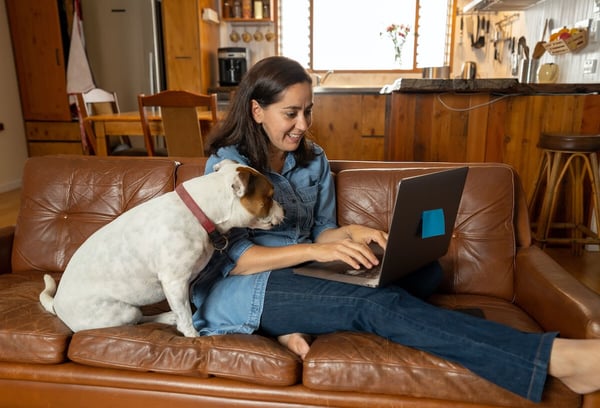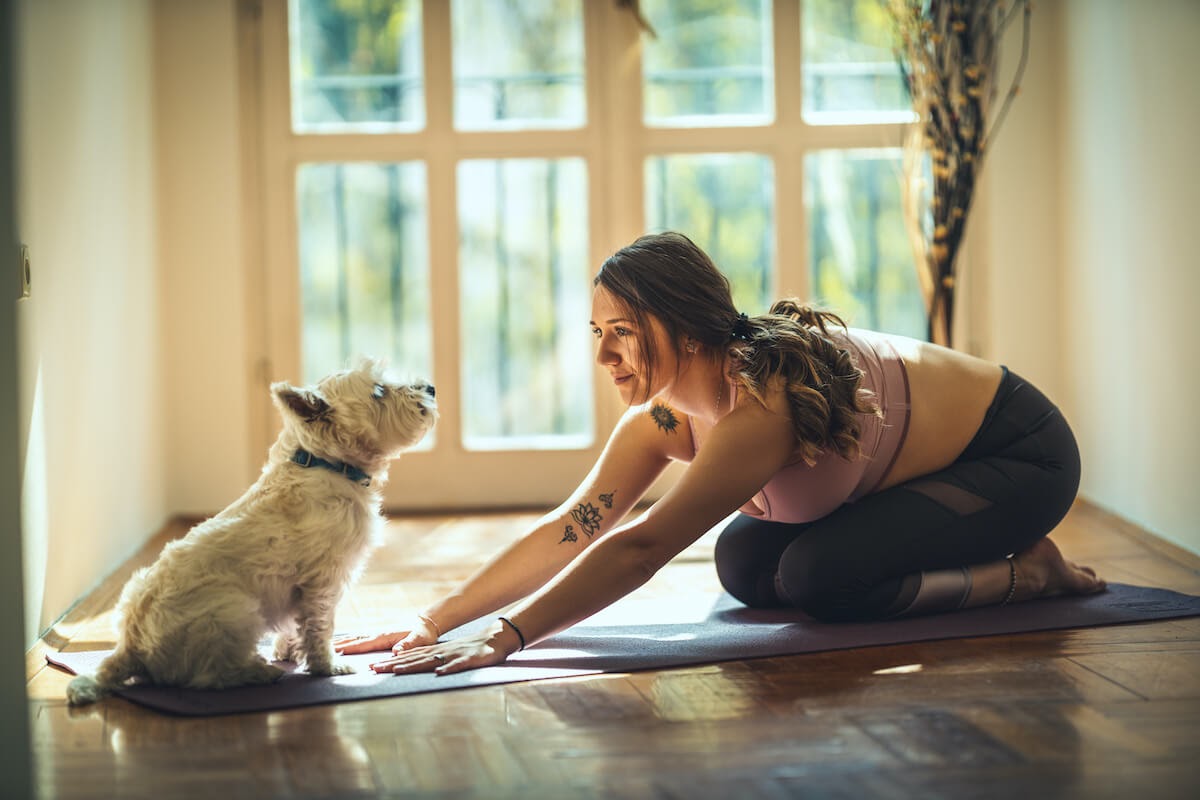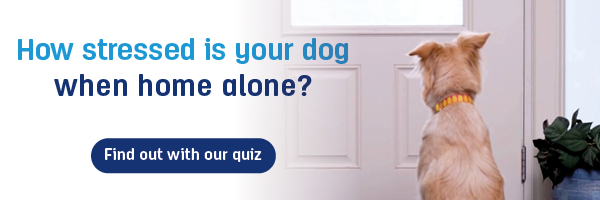Lockdown has had an impact on us all - including our pets! Until we all had to stay at home, our pooches had their own routine, they knew exactly what to expect on a daily basis - when it was playtime, alone time, feeding time and walkie time - then overnight they had to get used to having humans around the home all day, which in turn brought a different routine.
In a recent international study by ADAPTIL, 25% of owners felt that the lockdown period had been stressful for their dog, mostly due to the inevitable changes in household routines; 38% of owners noticed several changes in their dog’s behavior, such as being more attention seeking, wanting to be closer to them, they wanted more affection, but they were also barking more and showed signs of being anxious.
So how will our return to everyday life affect our pooches? What doggy behavior can we expect as a lockdown period relaxes, and how can we prepare our pets to adjust?
UNDERSTANDING SIGNS OF DOGGY STRESS
Dogs can be fairly adaptable and adjust to change with support, but there are signs to watch for that could indicate your pooch is anxious or concerned.
These can range from panting, shaking or trembling, low energy levels, crouching with their tail between their legs, or whining and barking. These can be triggered by:
Pending time alone
After weeks of being around all day, you may find that your pooch gets anxious when they are left alone again. Dogs are social animals, so when they are left on their own, the absence of the family group can cause fear, frustration and anxiety. But in some dogs, spending time alone could result in them being bored, as they may not be getting enough mental or physical stimulation.

You can help your dog when they have to spend time alone by occupying them with self-play toys like chews, stuffed Kongs or items that you are happy for them to chew, like an old slipper. Leave your dog alone for short periods to play in their room or crate, returning occasionally to reassure them that you are around - gradually lengthening the time they are left alone; this will help to build up the amount of time they can spend on their own.
Boredom
Make sure your pooch gets a good walk before you go out, and leave them with things to keep them occupied while you are not there - toys, puzzles, chews etc. and perhaps arrange for someone to visit them and let them out for a toilet break while you are out. If you have the TV or radio playing normally when you are home, leave it on when you go out as this could be comforting to your dog. Develop a new routine that you will be able to continue when you go back to work - this will allow your pooch to get used to it gradually.
Frustration
There may be something going on outside that your dog wants to have access to - your neighbor’s dog may be playing in the garden and your dog may be frustrated as they can’t join them. Try to block their view outside so that they can’t see what’s going on - and again leaving the radio on will block out any noises from outside that may be distracting them.

Scared
Is your dog scared of being alone? Something may have happened when they were on their own previously, such as a loud noise, which frightened them. Your dog may then associate being alone with the frightening experience and so when it looks like you are leaving them they become anxious. If you know what they are frightened of, take steps to address their fear.
Try to break the cycle of them being scared - perhaps put on your coat but don’t leave straight away; leave for only a short period of time at first, then extend the length of time gradually until they get used to it. If sudden noises seem to be scaring them, start making more noises around the home whilst you are still there - this will help them to adjust to unusual sounds and take them in their stride. It may even be worth using a recording if it is a specific sound they are frightened of, as this will help them to gradually become accustomed to it.
Nervous
If you have adopted a new puppy during lockdown, remember they will be used to having you at home all the time - they will not yet have experienced being home alone. In this case, they may well get nervous if they sense you are not around.
It’s important to get puppies used to spending time alone as soon as they’ve settled into their new home, as this will help to prevent problems further down the line. Of course, lockdown has certainly meant that our pooches are spending more time with us than ever before! To help them readjust to spending time alone, develop the routine that you will adopt well in advance - this should include getting up earlier, taking your pooch for a walk early in the morning, feeding times should be gradually adapted accordingly, and regular play times should be built into your day. Doing this in advance will ease your dog gently into a new routine.
In our international survey, 41% of owners felt that their relationship with their dog had changed during lockdown, with the vast majority of those saying it has improved (95%). This is great news, so it’s important to try and maintain this relationship by identifying any possible issues that your pooch may have and addressing them before returning to normal.
HELP YOUR DOG ADJUST WITH ADAPTIL
There are different ways to help dogs cope with different situations, such as keeping them physically and mentally stimulated (walks, training, playtime) as well as creating a relaxing environment in the home.
Using an ADAPTIL Calm Home Diffuser can provide comfort and support to your dog in the home, whether they are alone or with you, and can help them as they adjust to any new routine.



